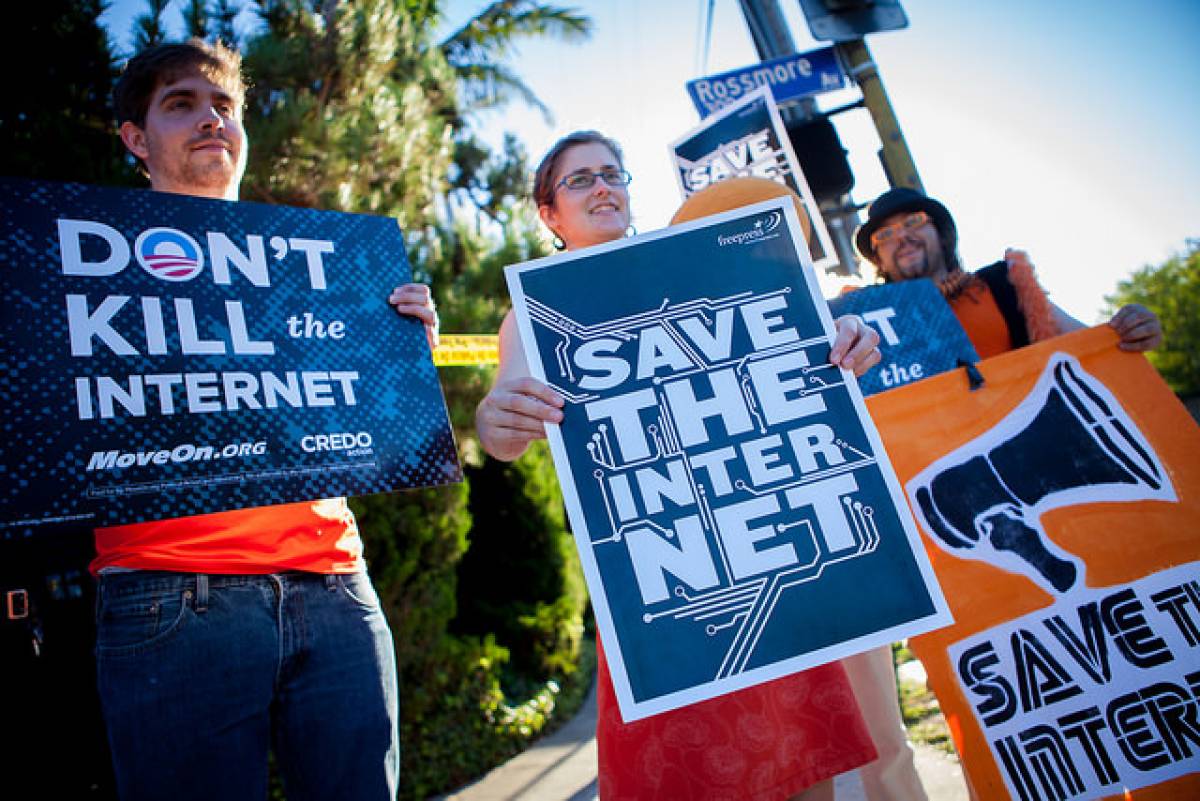Six More Tech Companies Sue the FCC Over Net Neutrality

Six tech companies have announced they are suing the U.S Federal Communications Commission (FCC) for gutting of Obama-era net neutrality rules. The tech companies that include Foursquare, Etsy, Shutterstock, Automattic, Kickstarter and Expa filed legal challenges in the D.C. Circuit Court of Appeals Monday requesting the court to reverse the FCC's decision made last December to end net neutrality.
Tech Companies Challenge the FCC over Net Neutrality
The tech companies, assembled under a new banner dubbed the Coalition for Internet Openness, say the Obama-era internet regulations prevented internet service providers (ISPs) like Comcast and Verizon from charging internet companies and users different rates for faster internet access.
Now that the FCC voted to end the rules, a company like Netflix could be forced to pay the broadband providers for better access to compete with, say, Hulu. That kind of scenario has happened before net neutrality rules were implemented in 2015, and it's the type of thing the Coalition members fear.
“The fight for net neutrality is the fight for civil liberties, and a more vibrant culture. Without it, the free and equal exchange of ideas is at risk," Candace Martin, commercial counsel for Kickstarter, is quoted as saying about the company's lawsuit in an emailed statement to Mashable.
The Coalition’s Case Joins a Slew of Other Lawsuits
The lawsuit against the FCC comes on the heels of another existing lawsuit filed on the same issue back in January that was joined by the Internet Association, which represents Amazon, Google and Facebook. Mozilla, the nonprofit organization that maintains the Firefox web browser, and the video-sharing website Vimeo also sued the FCC late last month.
Individual states like Montana have also filed lawsuits to preserve net neutrality, as have multiple public interest groups like Free Press, Public Knowledge and New America’s Open Technology Institute. A coalition of 23 state attorneys general challenging the FCC in the DC Circuit, allege the FCC’s order to end the Obama-era internet rules violated federal law, including the Communications Act of 1934.
Despite the slew of lawsuits fighting for an open internet, the big telecoms that stand to benefit the most from rolling back of net neutrality rules overwhelmingly support the FCC’s move to end the rules. Some smaller ISPs, however, have pledged to uphold net neutrality regardless of the FCC order, including Starry, Sonic, Rocket Fiber, Ting, Pilot and Karma.
"Starry supports a free and open internet, and we protect our customers’ right to use the internet however they see fit,” writes the Boston- and New York-based internet services provider on the company’s official blog. “We treat all traffic equally, because a free and open internet has been the single biggest driver of innovation over the last generation, and we want that engine of innovation to continue unimpeded.”
Meanwhile, Washington State has become the first state to approve net-neutrality rules in direct opposition to the FCC. This after Governor Jay Inslee signed into law a bipartisan bill earlier this week on Monday preventing service providers from blocking online content and throttling traffic.
At least 20 other states are considering similar legislation.
Image Credit: FreePress




















